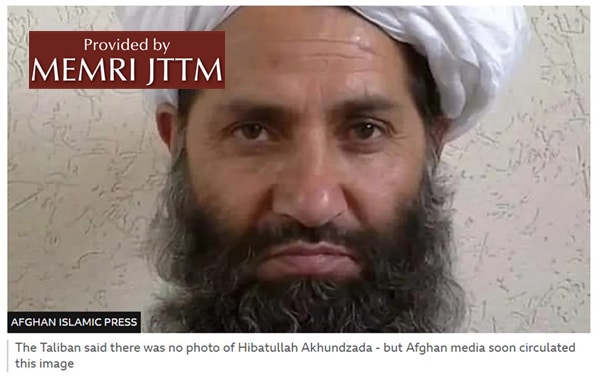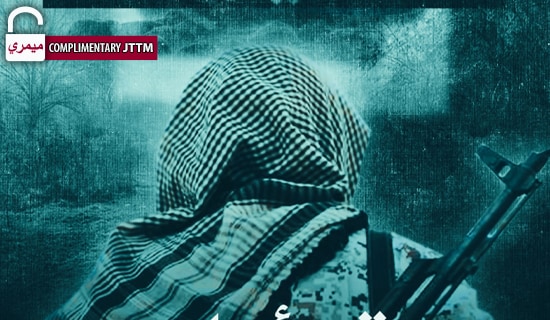The following report is now a complimentary offering from MEMRI's Jihad and Terrorism Threat Monitor (JTTM). For JTTM subscription information, click here.
In an article marking the 9/11 anniversary, the independent Afghan daily Hasht-e-Subh examines the re-emerging environment in which a 9/11-like terror attack could be planned from Afghanistan or Pakistan, arguing that the Afghan Taliban rulers are protecting several jihadi organizations such as Al-Qaeda, Tehreek-e-Taliban Pakistan (TTP), and others, while the Islamic State Khurasan Province (ISKP) has also been executing major attacks in the region.
The article, titled "Taliban’s Preparation for a New Catastrophe: Is the Threat of September 11 Re-emerging?" is written by Besmillah Taban.
Recommending counter-extremism measures against the jihadi groups in Afghanistan, the author states: "Essential measures include enhancing economic sanctions against Taliban leaders, imposing strict travel restrictions on group members, and supporting opposition groups such as civil society, media, women, and [anti-Taliban] military factions like the National Resistance Front of Afghanistan and the Afghanistan Freedom Front."

9/11 terror attacks on New York in 2001 (image: X)
Following are excerpts from the report:
"A Member Of Al-Qaeda Is Serving As A Key Advisor To Sirajuddin Haqqani In The Taliban's Ministry Of Interior"; "The Taliban Have Sheltered Several Senior Al-Qaeda Members, Including One Of Osama Bin Laden's Sons"
"Multiple reports indicate that several terrorist groups, including ISIS Khurasan Province [ISKP], Al-Qaeda, TTP (Tehreek-e-Taliban Pakistan), the Islamic Movement of Uzbekistan, Jaish al-Adl, and others (some experts estimate up to 21 groups), are currently recruiting, promoting terrorism, and training their forces under the Taliban's umbrella, preparing to create insecurity and implement their future plans.
"But What Are the Primary Signs?
The Taliban, a radical religious group with a long history of terrorist behavior in Afghanistan, has established its political regime through the usurpation of power, creating an extraordinary environment for regional and international terrorist groups.
"According to reports from UN experts and reputable international media, Al-Qaeda has established several training centers in Afghanistan and has direct access to the country's mineral wealth. Al-Qaeda leader Ayman Al-Zawahiri was killed in 2022 by a drone strike in Kabul's Green Zone, and there are credible reports that a member of Al-Qaeda is serving as a key advisor to Sirajuddin Haqqani in the Taliban's Ministry of Interior. Several individuals previously affiliated with Al-Qaeda now hold official positions in the Taliban regime, such as Qari Baryal, who was initially appointed as the Taliban governor of Kabul and is now the governor of the Kapisa province.
"Local sources report that the Taliban have sheltered several senior Al-Qaeda members, including one of Osama bin Laden's sons, in the Panjshir province and are providing protection for them. Reputable media outlets have repeatedly reported that Al-Qaeda has called on its supporters to come to Afghanistan for training and to plan attacks against the world.
"TTP [Tehreek-e-Taliban Pakistan], a regional radical Islamic group with a history of terrorist behavior and long-standing conflicts with the Afghan government and international forces, now operates freely in Afghanistan as a significant ally of the [Afghan] Taliban. It has several schools, which are essentially training and indoctrination centers, in various provinces and enjoys special security and logistical privileges from the Taliban regime, particularly the Haqqani Network.
"Using the safe space in Afghanistan, TTP has strengthened and expanded its terrorist activities within Pakistan, with reports from Pakistani officials and research centers indicating a significant increase in terrorist activities in regions like Khyber Pakhtunkhwa and Balochistan."
"Complex Terrorist Attacks Have Been Carried Out Multiple Times [By ISKP] Within Iran... And The Attack On A Concert Hall Near Moscow, As Well As Several Attacks In Pakistan, Showcasing The Group's Capability To Threaten International Security"
"ISIS Khurasan Province [ISKP], as a major terrorist group, poses a serious security challenge to Afghanistan, the region, and even the world. Although this group seems to be in complete conflict with the Taliban, an overall analysis of both groups' narratives regarding global jihad, the establishment of an Islamic Sunni state, and their definitions of enemies shows that, strategically, both groups are pursuing similar goals.
"ISIS has intensified its security activities against Shia, and Hazara and Sufi communities in Afghanistan and has also taken various actions against the Taliban. Findings from multiple sources, including the Taliban's military purification commission, reveal that ISKP has infiltrated this [Taliban] group to an unprecedented degree, with dozens of Taliban military members being dismissed and imprisoned for alleged ISKP affiliation and cooperation.

Sirajuddin Haqqani, wanted by FBI, is the chief Haqqani Network
"ISKP has managed to access sensitive locations within Taliban administrative offices and carry out attacks, including explosions in a mosque within the Taliban Ministry of Interior's compound, the killing of the Taliban governor for Balkh, Dawod Muzamil, and the murder of two prominent pro-Taliban clerics, Mullah Mujib Rahman Ansari and Mullah Rahimullah Haqqani, among others.
"Furthermore, ISKP has utilized the security vacuum in Afghanistan, which can be likened to a security black hole, to design and execute cross-border activities. Complex terrorist attacks have been carried out multiple times within Iran, including the attack on the Qassem Soleimani memorial ceremony in Kerman, attacks on the Shah Cheragh shrine in Shiraz, and the attack on a concert hall near Moscow, as well as several attacks in Pakistan, showcasing the group's capability to threaten international security.
"Regional countries have also reported arrests of individuals suspected of being members of ISKP, indicating the growing expansion of this terrorist group's influence in the region and globally."
"The East Turkestan Islamic Movement [ETIM], Tajikistan's Ansarullah, The Islamic Movement Of Uzbekistan [IMU], Jaish Al-Adl, Lashkar-E-Taiba [Let], And Others Have Also Found A New Lease On Life Under The Taliban's Protection, Turning Afghanistan Into A Haven For Various Global Terrorist Groups"
"Other groups such as the East Turkestan Islamic Movement [ETIM], Tajikistan's Ansarullah, the Islamic Movement of Uzbekistan [IMU], Jaish al-Adl, Lashkar-e-Taiba [LeT], and others have also found a new lease on life under the Taliban's protection, turning Afghanistan into a haven for various global terrorist groups.
"There are reports from reliable sources indicating that the Taliban, following a directive from their leader [Mullah Hibbatullah Akhundzada], has issued Afghanistan citizenship and passports to a significant number of foreign members of affiliated and protected groups. These individuals are expected to be dispatched on specific regional and international missions under various official, unofficial, and even migratory capacities to Western and regional countries.
"One of the most crucial signs that could prompt serious global attention is the Taliban's officials' admission of the possibility of attacks similar to September 11. In response to Asif Durrani, Pakistan's Special Representative for Afghanistan, who claimed that a September 11-like attack could originate from Afghanistan, a Taliban Foreign Ministry official acknowledged the possibility of such an attack but suggested it might come from Pakistan rather than Afghanistan.
"These accusations, or rather admissions, from both sides, highlight the significant threat posed by the Taliban and Pakistani officials. Even if we assume the Taliban's claim is accurate, there are active groups in Pakistan whose command and strategic backing are under Taliban control. These accusations, or more accurately, admissions from both sides, are not without merit. Both parties have substantial awareness of the situation.
"Pakistan, with its strong intelligence service and historical connections with jihadist groups in Afghanistan, would not raise such a serious issue without clear evidence. It is also a crucial indication of the magnitude of the threat posed by the Taliban and their allies, including the Pakistani intelligence service's support for jihadist groups..."
"The Current Global Situation Including Rapid Technological Advancements, Widespread Illegal Migration, Digital Currencies, Drug Trafficking, Radical Jihadist Narratives, And The Rise Of The Taliban As A Source Of Inspiration For Radical Islamic Groups Has Greatly ... Accelerated Terrorist Activities"
"The current global situation including rapid technological advancements, widespread illegal migration, digital currencies, drug trafficking, radical jihadist narratives, and the rise of the Taliban as a source of inspiration for radical Islamic groups has greatly facilitated and accelerated terrorist activities. Terrorist groups are no longer limited to traditional tactics such as bombings in urban buses or metro stations; they are increasingly adopting more complex and diverse methods to instill widespread fear and impact various aspects of collective human life.
"The pervasive fear of Islamic terrorism in European countries has led to persistent anxiety among citizens and intensified the workload of security agencies. This surge in terrorism not only creates security challenges but also has significant implications for democratic values and the continuity of moderate and democratic political parties.

"The notable rise in the popularity of far-right parties in France, Italy, Germany, Sweden, and the Netherlands is partly a result of radical group activities under the guise of migration. If this trend continues, it could threaten not just security but democracy itself in the West. Some European experts are now questioning whether democratic values should take precedence over security concerns.
"The security concerns posed by radical Islamic groups, predominantly based in Taliban-controlled Afghanistan, are serious. Ignoring these threats only increases the risk that they will eventually impact both regional and Western countries. To prevent such dire consequences, the global community must adopt a cohesive, continuous, and united approach to combating these threats. The cost of neglecting the actions of the Taliban could be extraordinarily high.
"Essential measures include enhancing economic sanctions against Taliban leaders, imposing strict travel restrictions on group members, and supporting opposition groups such as civil society, media, women, and military factions like the National Resistance Front of Afghanistan and the Afghanistan Freedom Front."
The full text of this post is available to subscribers.
Please login or register to request subscription information from MEMRI









